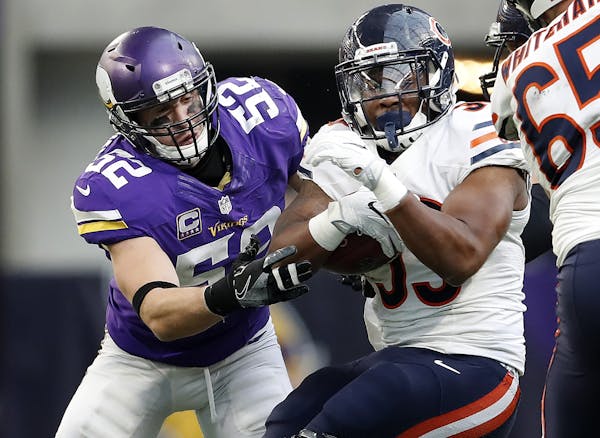If you're a Vikings fan with the stomach to watch this weekend's NFL playoff games, you will probably see two pretty entertaining games.
You will most definitely see great quarterbacks.
Aaron Rodgers and Tom Brady are sure-fire Hall of Famers. Ben Roethlisberger is a two-time Super Bowl champ and a good bet to be in the HOF someday, too. Matt Ryan has consistently been one of the better quarterbacks in the league over the past several years.
This is nothing new. Elite QBs dominate the playoffs. Sure, the Broncos won the Super Bowl with subpar QB play from Peyton Manning last year. And yeah, there's always Trent Dilfer in 2000 with the Ravens and — sorry — Brad Johnson in 2002 with the Bucs.
The other 13 quarterbacks to win Super Bowls since Dilfer? Brady (four times), Roethlisberger (two times), Eli Manning (two times), Rodgers, Drew Brees, elite-level Peyton Manning, Joe Flacco and Russell Wilson. All of them are either elite or went on elite runs to win the title.
Having a great quarterback is the single most important factor in being a Super Bowl contender, which brings us to an important question: do we know yet if the Vikings' Sam Bradford is a Super Bowl-caliber quarterback?
This same question was asked of Teddy Bridgewater going into the season, based on the idea that the Vikings had amassed an elite defense but would likely need Bridgewater to elevate his game to be a serious contender.
Bridgewater, of course, suffered a devastating injury. Bradford arrived soon after and put together the kind of season — at least statistically — that would have satisfied pretty much everyone if they were attached to Bridgewater's name: an NFL record 71.6 completion percentage, 3,877 passing yards, 20 touchdown passes, 5 interceptions and a 99.3 passer rating (sixth in the NFL). His play and Bridgewater's uncertain future caused coach Mike Zimmer to say Bradford has "earned the right" to remain the team's starter in 2017.
But do we know yet if he's Super Bowl material? It's complicated.
Bradford brought immediate stability to a tough situation and helped guide the Vikings to a 5-0 start with strong play. His deep ball accuracy was underrated, but he also finished with the second-lowest percentage of "air yards" — passing yards gained from the line of scrimmage to the point the receiver caught it — behind noted game manager Alex Smith.
His total QBR — a metric considered by some to be a more accurate reflection of a QB's value than passer rating — put him just 17th among NFL QBs. (By comparison, Bridgewater was 19th in 2015). Ryan (No. 1), Brady (2), Rodgers (4) and Roethlisberger (10) all fared quite well in total QBR in 2016.
Bradford led clutch drives in home games against Detroit and Dallas, but the Vikings lost both games (and had just nine points in each game before Bradford led them for late scores). Per Team Rankings, the Vikings finished just 26th in estimated offensive points per game at 17.8 — a key factor in their nosedive to an 8-8 finish.
The Vikings' offensive line was poor, their running game was virtually non-existent and their wide receivers are no better than average. Bradford performed admirably and put up strong numbers in spite of that, and with a little more luck would have guided the Vikings at least into the playoffs.
The Super Bowl? That's a whole different subject. The logical conclusion is that we didn't learn enough about Bradford in this weird 2016 season to know if he can get the Vikings there.
But despite some positive signs, we did learn enough that we wouldn't put Bradford in the same conversation with Rodgers, Brady, Roethlisberger and Ryan — guys who you know can make the critical 3-5 plays that tip the balance of close games.
That makes 2017 the same type of important year for Bradford that we thought 2016 was going to be for Bridgewater.
In heated western Minn. GOP congressional primary, outsiders challenging incumbent

Minnesota Sports Hall of Fame: A class-by-class list of all members

This retired journalist changed professional wrestling from Mankato

